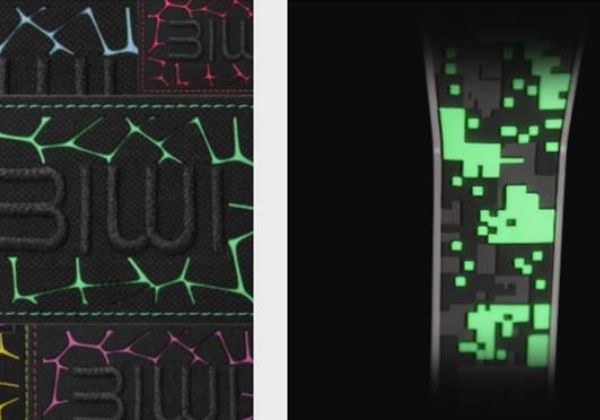What do Richard Mille, Roger Dubuis and Hublot have in common? It’s an open secret that they, and others, go to Biwi for premium rubber straps. Of course, Hublot has played a decisive role in popularising the rubber strap for the past 40 years. Richard Mille (and Roger Dubuis) convinced us that rubber straps weren’t just for sports watches and could be fitted to high-end timepieces too.
A family affair
Behind the brand is a family: the Bourquards. Seventy years ago, Pierre Bourquard set up a factory making crowns. Forty years ago, operations were extended to gaskets. Two generations later, Pascal Bourquard Jr. continues the transformation of this family-run business into a leader in the rubber strap sector. The numbers are impressive: in three years, Biwi has tripled its workforce. At a time when industry is struggling to find new marks, even markers (hence the retro influence), Biwi is full steam ahead. “Our only growth engine is innovation. I refuse to visit a client if I don’t have at least one new product to show them,” comments Pascal Bourquard Jr., who took over the reins three years ago.

“We employ doctors in chemistry”
It was a bold move, starting with the decision to expand the workforce. Going from 100 to 300 people in 12,000 square metres “was never a foregone conclusion. We’re not looking for machine operators. We’re looking for people with a PhD in chemistry, people who understand materials used in aerospace, aviation and Formula 1. There is no equivalent to MIT in the Jura, meaning we have to cast the recruiting net wider. There are some excellent schools and institutes in France. We’ve now reached a stable level of growth and have extended our premises so we can provide clients with the best service possible.”
What about product range? Unlike the majority of luxury labels, Biwi has no intention of only serving the premium market. Prices range from CHF 10 to CHF 1,000. “You have to be capable of meeting every requirement. I’ve never turned a client away,” insists Pascal Bourquard Jr.
Then there is the 100% Swiss-made positioning. While this may seem obvious for luxury brands, for smaller companies, it’s more of a challenge, given the costs involved. Except Biwi has a secret weapon: “We do everything in-house, from A to Z. Even our tools are made in Switzerland, on our premises.”
Within limits
It’s tempting to look for the cloud behind the silver lining; to find out where Biwi isn’t top of the class. While the company has anticipated the move toward greater sustainability in watchmaking and obtained vegan certification for its products, as well as introducing recycled rubber, it doesn’t offer plant-based straps (apple, pineapple, etc.), even if natural rubber is also of plant origin.

“It’s not our core business. We specialise in injection moulding,” says Pascal Bourquard Jr. Except Biwi has extended operations and now manufactures crowns, cases, bezels and flanges… not its core business, either. It used to be that only a few precursors, such as Frederique Constant, proposed plant-based straps. Now brands at the top end of the market are making the move, such as Greubel Forsey which from next year will use only non-animal leather.

If the trend gains traction, Biwi is ready. The brand is already exploring new areas and is active in the medical, military, jewellery, leathergoods and fashion sectors. Rubber is still its calling card, but it also has capabilities in silicon and composite materials, for example. Most of its production is patent-protected, “but there’s always an end to a patent or a way round it, whereas creative thinking has no limit.”






